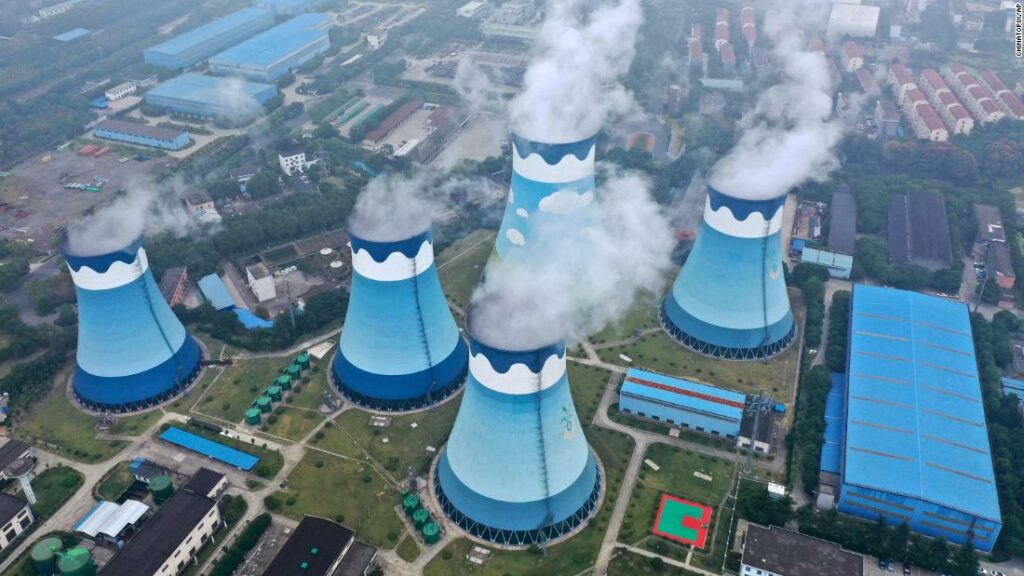Analysis: The energy crisis couldn’t have come at a worse time for climate

So much for the fight against the climate crisis — it’s the energy crisis that’s taking precedence. And it couldn’t have come at a more crucial time.In just three weeks, leaders and negotiators will meet for the COP26 international climate talks in the Scottish city of Glasgow. Momentum was building for putting an end date on coal and speeding up the global transition from climate-altering fossil fuels to renewables before the crisis hit. But a rush back to fossil fuels is worrying some experts that this moment in time could slow down that transition, particularly on the phaseout of coal, now in closer reach than at any other time in history. “The worry with China’s power crunch is that it appears to be strengthening the argument of pro-coal interests there that the transition to renewables is happening too fast,” said Christine Shearer, Global Energy Monitor’s program director for coal, which tracks the use of fossil fuels around the world. With winter fast approaching and the global economy rebounding from the Covid-19 pandemic faster than the world had prepared for, governments are being forced to reach for sources of energy that are readily available. The infrastructure that exists to harness energy from renewables like wind and solar simply isn’t enough to meet demand. “A lot of decision-makers are sort of panicking in some ways about the social response,” said Lisa Fischer, program leader at the European climate think tank E3G.Throwing more money at fossil fuels is not a solution, she said, and some short-term solutions are contradictory to longer-term sustainable goals.A better response would be to “turbocharge” funding for deploying renewable and energy efficiency programs, including getting infrastructure projects that were hampered by the pandemic, off the ground.And there entails the dichotomy of the crisis — the world can either “turbocharge” efforts in renewables, or slow it down, and lean more on fossil fuels, as is happening now. A geopolitical messThere are several reasons for the energy crunch, beyond the rebound from the pandemic. Power from renewables has been below expectations — in the UK and continental Europe, the summer was less windy than usual, so wind power under-delivered. In China, lower rainfall meant less energy from the country’s hydropower plants. On top of that, Russia has been accused of slowing gas supplies to Europe to encourage a faster approval process for its Nord Stream 2 gas pipeline that runs under the Baltic Sea to Germany. Gazprom denied the accusation to CNN last month, but on Thursday, Russia’s Deputy Prime Minister Alexander Novak said explicitly that Chinese authorities have kept mountains of coal imported from Australia sitting at docks for months, refusing to show Australia it is willing to take its exports as the two countries remain cold over Canberra’s calls for an investigation into the origins of Covid-19. That has only added to the power shortage in the country. Chinese officials told companies in the country’s industrial heartlands last month to limit energy consumption to reduce demand for power, state media reported. Some provinces experienced blackouts in homes as supplies were cut. But as the crisis grows and global demand for Chinese goods soars, Beijing switched tack, telling coal miners Hungarian Prime Minister Viktor Orbán is leading that camp, It hasn’t worked — OPEC+ said Monday it would only gradually add supply to the market. Either way, Biden’s calls for more oil sit at odds with his climate agenda, which includes boosting the country’s electric vehicles market. According to the International Energy Agency, in order to reach net-zero by 2050 — where the amount of greenhouse gases emitted is not greater than the removed from the atmosphere — the world has to stop expanding fossil fuel production. But some experts are hopeful that leaders will choose the harder but more rewarding path at COP26. While the UK has returned to coal in the short term, its department of Business for Business, Energy & Industrial Strategy on Thursday announced plans to fully decarbonize its electricity sector 15 years earlier than it previously planned.”Going into the climate conference, the backdrop is demonstrating the extreme impacts of relying on fossil fuels — to my mind, I think that could be enough to push some countries on the fence to really double down on renewables,” said Charles Moore, director of the European Program at the think tank Ember Climate.”I think UK is a great example. The UK just came out and committed to fully decarbonize the electricity system by 2035,” he said. “That’s from the host of the climate conference.”CNN’s Angela Dewan contributed to this report.







